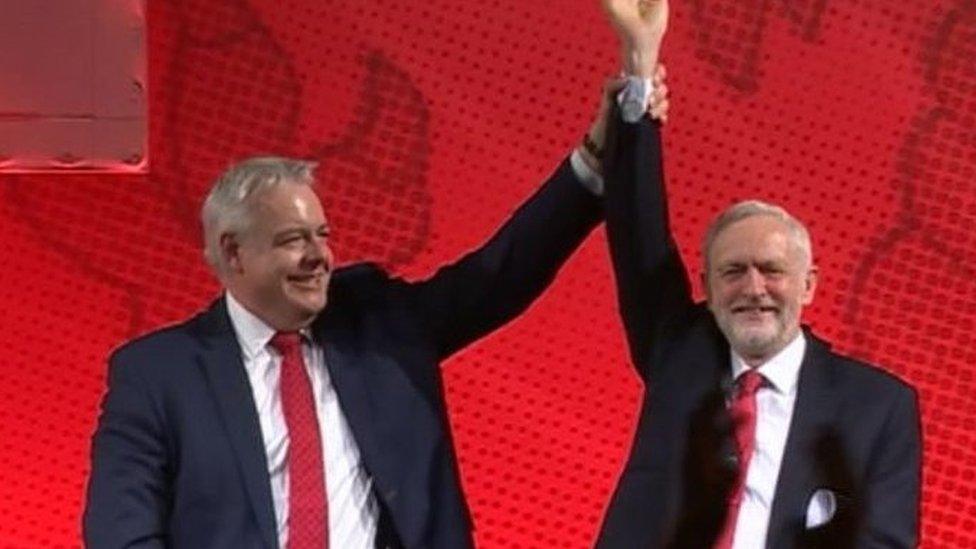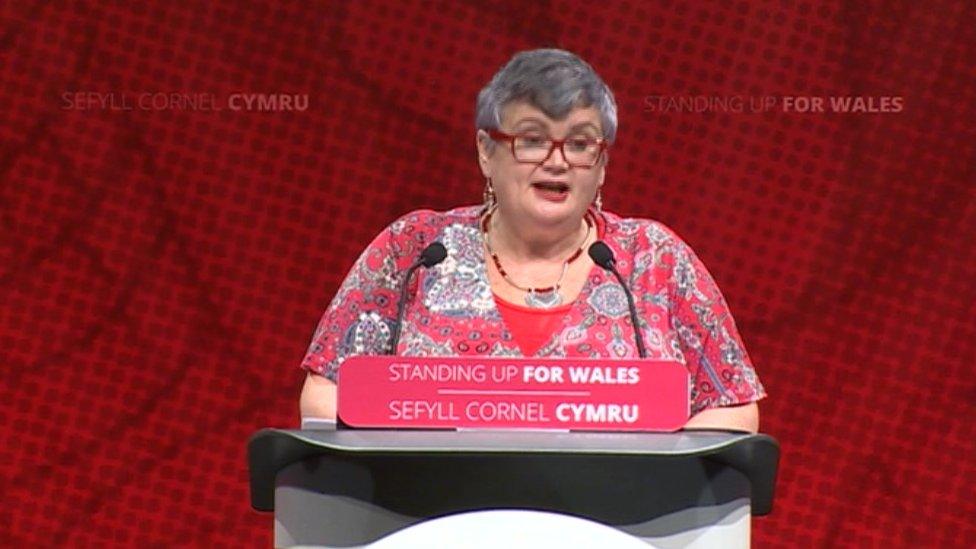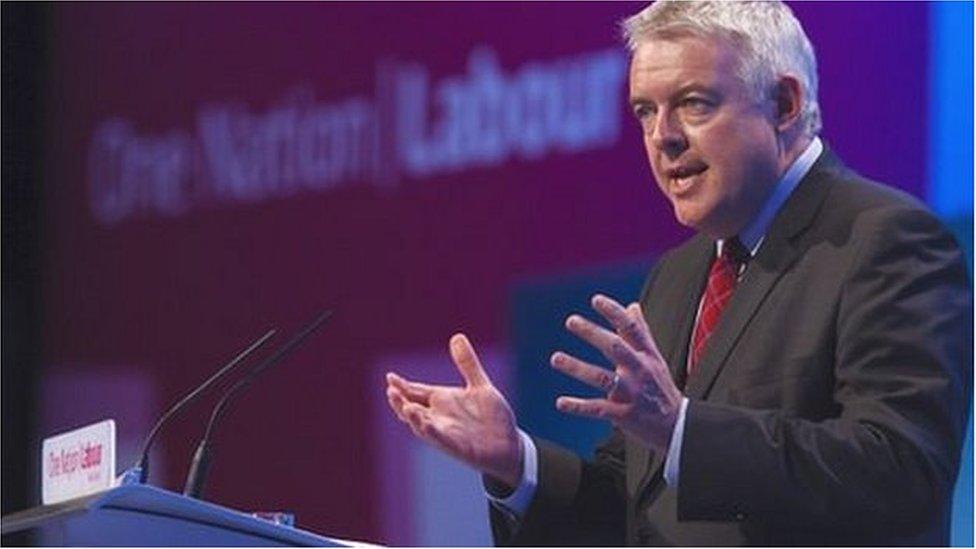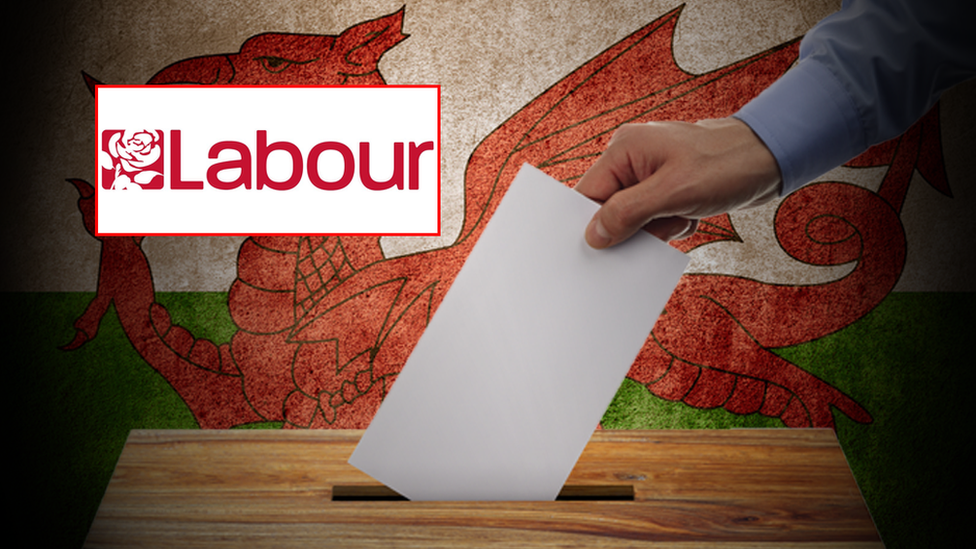Welsh Labour to hold Corbyn-style leader vote review
- Published

First Minister Carwyn Jones will step down in December - there is a row over if the rules to elect his successor should be changed
Whether the next Welsh Labour leader is elected under the same system as Jeremy Corbyn is set to be decided at a special party conference.
First Minister Carwyn Jones is set to step down in December after almost a decade at the helm of Welsh politics.
But under the current electoral college system, his successor may win without a majority of votes from party members.
Campaigners say bringing in the one-member-one-vote system - used to elect Mr Corbyn twice - would be fairer.
Party bosses met on Saturday and decided to ask the former cabinet minister Lord Murphy to lead a review into the current voting system used in Wales.
A special party conference will be held in September where a decision on whether to change the system is expected to be made.
Mr Jones, who announced he would resign in a shock move in April, said there had to be a discussion about the voting system before the contest for who would replace him takes place.
He said: "It's a matter now for the party and its membership to decide how we move forward."
So far, Finance Secretary Mark Drakeford and Health Secretary Vaughan Gething have announced their intention to stand in the race to become the next first minister - but at the moment, only Prof Drakeford has enough nominations from AMs to run.
Labour's UK leader election system was changed to one member one vote (OMOV), where all votes count equally, in 2015.
But in Wales the leader is elected under the electoral college system, where the electorate is split into three sections - MPs and AMs, members, unions and affiliated groups - each delivering a third of the vote each.
The campaign for the system to be changed intensified after Carolyn Harris MP won Welsh Labour's deputy leadership election, even though more members voted for her rival, Julie Morgan AM.
Advocates of OMOV say the system is more democratic, but those who support the electoral college argue it reflects the links the party has with trade unions.

The success of Carolyn Harris in the Welsh Labour leadership election renewed calls for one-member-one vote in Welsh Labour
Carwyn Jones had backed a decision by the party to keep the existing electoral college system after a consultation last year.
But, in a paper considered by the Welsh Executive Committee when it met on Saturday, the first minister had proposed a "democracy review" of the party's structures.
It will be split into two sections, with the first focusing purely on leadership election voting.
Prof Drakeford is one of the numerous senior Welsh Government figures who support OMOV, but his rival Mr Gething has said he does not want to see the future system "diminish the voice of the trade union movement, the Co-op Party and our other affiliates".
Debbie Wilcox, Welsh Local Government Association (WLGA) leader, said she changed her mind on the matter following the deputy leadership election.
"I saw during the process, how difficult it is now to explain to residents, to people in the streets, how someone got so many more votes, and actually, the person wasn't successful," she said.
Unison and GMB called for AMs and MPs role in the electoral college to be reduced - or scrapped altogether.

Analysis - Arwyn Jones, BBC Wales political correspondent
My understanding is that Carwyn Jones had initially hoped the review looking into whether the party should change its system of electing leaders wouldn't report back until after his successor was in place.
In that regard he has clearly changed his mind, perhaps mindful of how the next leader could suffer in the face of opposition to how he or she got the top job.
There seems to be widespread support that AMs and MPs should lose their special status and be counted as ordinary party members when it comes to voting for the leader.
AMs, of course, decide who gets to stand in the first place.
But breaking the connection with the unions, and their share of the electoral college vote, will not be so easy.
- Published21 April 2018

- Published4 November 2017

- Published27 November 2016

- Published1 May 2018